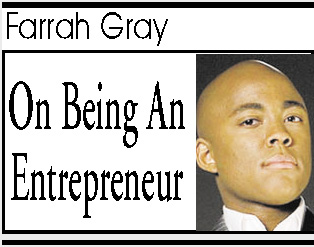(NNPA)—Today’s women entrepreneurs are vital to the growth of the nation’s economy employing over 13 million workers in the United States. Representing 38 percent of all privately held firms, women entrepreneurs are at the heart of any sustainable recovery for job creation and revenue growth. And yet, we find millions of women entrepreneurs juggling health care and child care costs while attempting to maintain a healthy household. It is safe to say, these modern day hustlers understand how to stretch a dollar better than ever before.
These women entrepreneurs possess an uncanny sense of determination. Their high tech savvy and natural social genius is often superior. Recent estimates including by the Center for Women’s Business Research indicate the nation has over 10 million businesses owned by women that generate close to $1.8 trillion in sales. These extraordinary women entrepreneurs by necessity always share one unique quality in their ability to think outside the box for creative solutions.
 |
As our nation’s health care conversations focus on the 46 million uninsured, many women entrepreneurs across the country are already meeting such challenges for their families. Some have found health insurance through a spouse’s employer, or even by joining the American Farmers Association or American Farm Bureau. Both offer many self-employed business owners access to affordable group coverage.
The controversial U.S. House of Representatives health care bill known as the America’s Affordable Health Choices Act of 2009 due for upcoming vote in September, proposes that a surtax on individuals who make $280,000 or more a year, although there have been discussions about raising the limit to $500,000 or more (the tax would range from 1 percent to 5.4 percent of income). Currently, the proposal does not include exemptions for S corporations or other small businesses, many of which file as individuals for tax purposes. This surtax may affect the income of half of all small businesses with 20 to 249 employees.
Individually, the self-employed woman entrepreneur continues to struggle with an uphill battle not only with daily business challenges but also spiraling costs of finding quality family health care coverage. Therefore, many hire part-time workers specifically to avoid health care costs because no financial incentive exists for them otherwise.
Today, small business owners face over 5 percent annual increases in health care premiums along with an economic downturn and rising overhead expenses. It is unusual to find self-employed health insurance that reaches the same levels of coverage offered by larger company employers. The primary issue being statistically the risk of a consistently healthy individual is generally lower than spread over a group. This results in higher expenses for the individual seeking the same level of services.
The first detail a self-employed person should look for in health insurance is what coverage they’re actually going to need. Full comprehensive health insurance gets very expensive. For example, raising deductibles, or accepting that you don’t need certain types of industrial compensation are useful ways to trim back costs and keep the health insurance affordable.
By talking to local neighbors about healthcare, friends, other business owners, or accountants many women entrepreneurs save a lot of money by learning from the experiences of others.
Many consider the U.S. Treasury Health Savings Accounts (HSA) that allows employees or employers not covered by another plan to make tax deferred contributions. This practical health care option can result in a solid employee benefit and savings for home-based or small business employers.
Other women entrepreneurs get involved with church, minority and small business nonprofit social organizations that provide health insurance education including the Minority Professional Association, MillionaireMoms.com, MomInventors.com, BlackEnterprise.com, Woman’sWork.com, BlackBusinessWomanOnline.com, and HomeBasedWorkingMom.com .
Throughout history, there are many models of successful female entrepreneurs such as Madame C.J. Walker (born Sarah Breedlove) listed in the Guinness Book of World Records as the First Female African-American to become a millionaire by her own achievements. Further, the well-known story of Oprah Winfrey’s life is truly inspiring as she overcame many challenges. Today, Oprah is admired as one of the most influential entrepreneurs in the world.
Regardless of the challenges, women have always played a critical national role whether it was as rural farm hands, military defense factory workers during WWII or today as innovative entrepreneurs employing over 13 million people. These determined small business leaders offer valuable experience and knowledge that promotes the constructive dialogue necessary for overcoming obstacles as our nation seeks answers to creating affordable health care solutions.
(Farrah Gray is e author of “The Truth Shall Make You Rich: The New Road Map to Radical Prosperity”, “Get Real, Get Rich: Conquer the 7 Lies Blocking You from Success” and the international best-seller “Reallionaire: Nine Steps to Becoming Rich from the Inside Out.” He is chairman of the Farrah Gray Foundation. Dr. Gray can be reached via e-mail at fg@drfarrahgray.com or his website at https://www.drfarrahgray.com.)